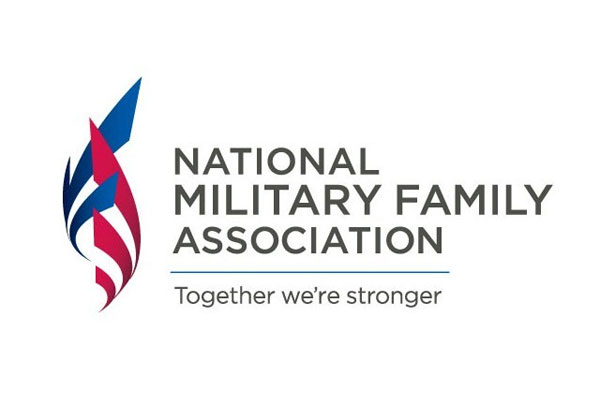Military Spouse Career Support and Educational Resources
Updated 2024.
Thanks to years of consistent advocating and lobbying efforts from military-friendly organizations on behalf of military families, there is now federal legislation and specific programming outside of the government to accommodate working military spouses.
The intention is to alleviate some of the burden placed on a spouse due to a PCS. Resources are available to expedite re-licensure, reimburse transfer fees, and assist with job preparation and education pursuits.
Many organizations are working hard to ease the pressures of military spouse career and education roadblocks. But for a spouse new to the scene, the number of resources can be overwhelming. This is certainly a great problem to have, but a little help to navigate all of the possibilities is needed. 
Photo from Canva
After checking out a few of the following resources, you’ll notice they do have commonality and often overlap, which is sometimes confusing; but the goal is to offer as many options to as many military spouses as possible, regardless of profession, education level, or spouse’s military rank.
This list serves as a starting point for someone just beginning the journey to find the best resource for their work and education destination.
Military Base Employment and Education Support
Often, some of the best employment and education support is found right on your closest military base. Typically, these services are in person (all branches of the military offer a version of support), which adds to the customization of your particular journey, but also provides one-on-one motivation. Much of the in-person help has changed to virtual appointments and events, so check with your installation online first.

Holly Nusom, military spouse advocate and content contributor to the MilSpouse Roadmap (see below) connects military spouses to the resources and guidance the Army provides through the Fort Campbell Army Community Service Employment Readiness Program. The employment program serves as an elite example of the spousal support the Army hopes to replicate on installations across the country to specifically serve military spouses in achieving their career and education goals.
Holly describes the services provided by the employment center:
"It's a 'one-stop-shop' with many employment-related services and resources in one building. Spouses can come into the center and, in addition to employment support such as resume reviews and job search assistance, receive referrals to on the job training programs, federal employment support, and connections to funding and scholarship programs.”

Photo from Canva
Online Career, Education, and Financial Resources
Although in-person guidance is a huge plus for education and career support, nationwide accessibility is certainly preferred for many military spouses who need unlimited access to spouse advocacy resources. These programs are open to all military spouses.
Hiring Our Heroes and Grow with Google created the Milspouse Roadmap designed to support military spouses who are working to beat unemployment rates through educating spouses about alternatives to traditional employment. An interactive resource, the roadmap “highlights the stages of these journeys, delineating where seemingly different professional paths coincide, and providing places where military spouses can access resources, obtain support, and expand their knowledge.”
The tool, created specifically for military spouses, details three common paths along a career journey: entrepreneurship and self-employment, remote work, and reskilling and upskilling. Along each course, actionable suggestions, and resources are listed to promote progress.

The National Military Family Association has been a staunch supporter of military spouse education and career advancement for years. Their latest website information has a comprehensive lineup of places to start researching licensing, education, and scholarship options. Take a look at a few of the stats NMFA has reported about military spouse employment in recent months.
Military Spouses by the Numbers
- Military spouses earn 26.8% less in income than their non-military counterparts, which adds up to $12,374 per year in lost wages.
- 92% are female.
- 30% have jobs requiring a license or certification.
- 30% have a four-year degree.
- 21% are more likely to be unemployed, one of the highest unemployed demographics.
NMFA is widely known for funding scholarships that allow military spouses to pursue their education or to start and improve their businesses. The scholarships cover a wide range of needs from classes, clinical hours, and re-licensure.
Federal Government Resources for Re-licensure and Employment
For a little legislative background refresher: the 2018 National Defense Authorization Act produced the Military Spouse Licensing Reimbursement Program which supplemented fees paid toward transferring professional licenses from state to state and OCONUS to stateside moves.

Photo from Canva
Later, in 2020, the NDAA proposed to expand the reimbursement program and was written to include spouses of servicemembers in the United States Public Health Service (USPHS) and National Oceanic and Atmospheric Administration (NOAA).
The Military Spouse Licensing Relief Act of 2020 is an amendment to the Servicemembers Civil Relief Act “to provide for the portability of professional licenses of members of the uniformed services and their spouses, and for other purposes.”
The Department of Labor is a solid first step into reviewing what spouse programs are available, starting with Military Spouse Interstate License Recognition Options. The DOL interactive map describes how each state supports military spouse license holders, either by allowing for expedited applications, temporary licenses, or complete license recognition.
The DOL currently lists these occupations with Interstate Reciprocity Agreements.
- Attorneys
- EMS Personnel Licensure Interstate Compact
- Nurse Licensure Compact (eNLC)
- Physical Therapists — Physical Therapy Compact
- Physicians — Interstate Medical Licensure
- Psychology Interjurisdictional Compact (PSYPACT)
For detailed suggestions on how to transfer or have your current professional license accepted, the DOL created a resource guide for military spouse license recognition with tips on how to find your specific licensing board and how to communicate with them about your transfer. 
Photo from Canva
You’ll also learn if and how much of a reimbursement your servicemember’s branch offers for your license transfers through the Military Spouse Licensing Reimbursement Program. Military spouses who move state to state due to a PCS are eligible for reimbursement of licensing costs. Check with your service branch for details.
Military OneSource works to continue exploring how to transfer your professional license and after, how to prepare and search for a new career or job post-PCS. Military OneSource also breaks down how to transfer professional licenses, from teaching to cosmetology, and more in between; there is guidance for each one.
Military spouses are consistently under and unemployed at far greater rates than their civilian counterparts. Much of the time this is due to the short few years spent at each duty station. Spouses are simply unable to recover from the financial burdens and disruptions associated with the lack of continuity.
With these local and federal online resources, now, more than ever before, military spouses have the chance to make small strides for achieving portable employment that syncs with military life.
Are you on Pinterest? Please share this post with the image below!






